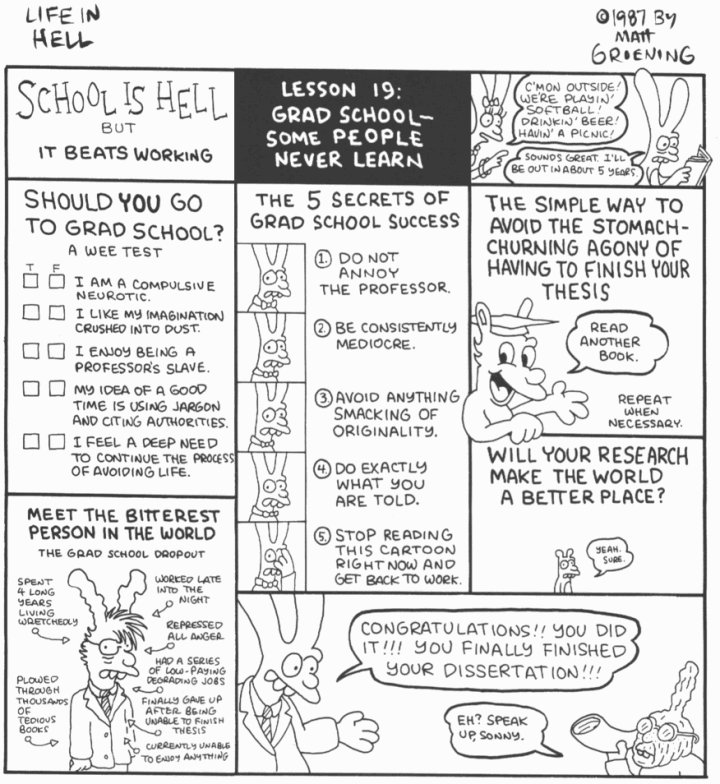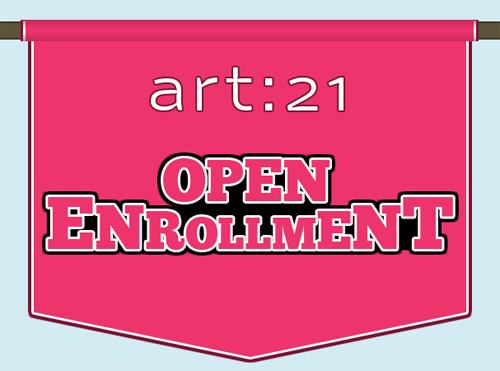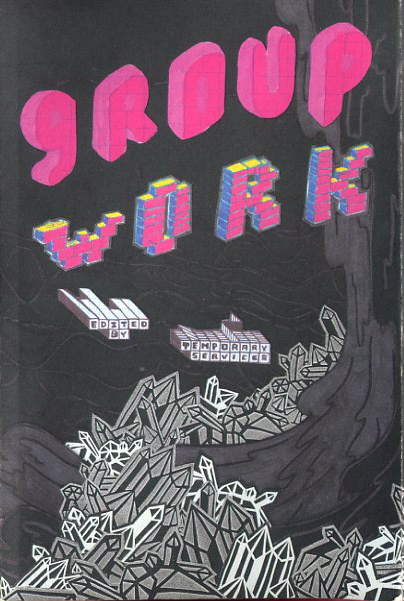Nearly eleven months in my year-long masters program, I am now in crunch time. The first two-thirds of the program was spent in three taught courses, and from May on, we’ve been working on our 10 to 12 thousand words-length dissertations, which will be due in mid-September. Don’t ask me how far along I am yet.
The process for writing a MA dissertation (what would be called a thesis in the States) has been not without anguish. There are a number of trepidations that plague one’s mind while working (or not working, as the case may be):
- Have I read enough?
- Have I read too much?
- Will I have too much to say and exceed the upper limits?
- What if I don’t actually have enough to say?
- Has someone already said what I’m trying to say?
- And, if I try to argue something similar to what’s already been said, will I come off as having missed something glaringly important?
- What if it all comes off as pointless filler?
- Isn’t it all pointless filler?
- Will my advisor like this or be terribly embarrassed?
- Who would want to publish this?
- How much is everyone else working?
- Won’t it suck when I completely bomb this and fail to get my Master’s and thereby waste a year in school and loans, not to mention trash my potential job prospects?
- Why am I doing this again?

Not quite my experience, but I sympathize. (From Matt Groening's "School is Hell" of the "Life in Hell" series)
I can only imagine the agony of doctoral candidates.
The harrowing writing process aside, my dissertation has been a great opportunity for reflection. As I listened to my colleagues present their topics during our MA viva in June, it struck me how each topic may reveal something about the person writing about it. Of course, there’s only so much of a person’s identity you can read into in a piece of writing, particularly a subject of study, but I certainly see resonances of my own professional trajectory within my studies.
I’m writing about the political implications within the intersections of collectives, social practice, and pedagogical practice, focusing primarily on the work of Temporary Services and 16 Beaver. (I feel so vulnerable declaring this in such a public forum!) My interest in these groups and those with similar practices began to develop while I was working under Nato Thompson at Creative Time, while I was helping organize the first Revolutions in Public Practice summit. Nato’s passion for politically motivated work was an inspiration to me. I had known art and social justice issues were both important to me, but Nato’s work introduced me to a lot of people and ideas working to intertwine the two. As a curatorial fellow at Creative Time, I was eager to learn more about these practices and theory in greater depth, but there was only so much time to do so within a professional environment with other, often logistical responsibilities at hand. When my dissertation topic dawned on me – in between sets at a Das Racist concert – it seemed obvious that I should study the politics of community and education within artistic practice. Grad school was made for thinking more about the stuff you’re too busy to explore at length in the workforce. Duh.
Thus, my dissertation has been a great opportunity to consider things I’ve been learning in and out of school. It’s also looking to be a fitting jumping-off point for my next step, as I’ll be working in the education department at an art museum back in New York for the next year, starting just as I turn in my dissertation. One of the big reasons I’m looking at my chosen topic of study is to better understand ways of making art accessible, and I’m curious to see how museum education strategies compare to the efforts of artists working with and in education. I’m particularly interested in observing how the recent shifts in curating and artistic practice, particularly as discussed in Curating and the Educational Turn, relate to museum administration. I don’t have much of a five-year plan, but ideally, I will one day have a career informed by the intersecting concerns of practicing artists, theory, and arts administrators. Although I expect the world and myself to change, work to ebb and flow and transform, I hope to remain dedicated to learning from community as well as learning more about the politics of communities, especially to better serve those marginalized within them. I’d like to imagine my dissertation will serve as a document of my current moment, the beginning of the path I’m on.





